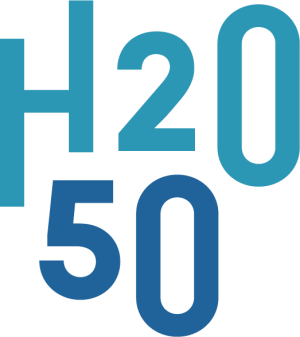“They both listened silently to the water, which to them was not just water, but the voice of life, the voice of Being, the voice of perpetual Becoming.”- Hermann Hesse
From knowledge, through competencies, to wisdom
The educational system as we know it is primarily based on the transfer of knowledge to the student, thereby increasing the latter’s capacity. Knowledge is often seen as essential for the development of an individual, so they can function effectively in society. Knowledge is power, and with sufficient knowledge, a person can contribute to the (economic) prosperity of society. Society has become increasingly complex in recent decades. And although the education system has tried to adapt along with it, it has fallen behind. The speed of change in society has been simply too high to allow the necessary adaptation/renewal in education to occur. Both the way we learn and what we learn will have to take a new form.
Embracing complexity (thinking)
The recent new vision of the HOGent (Een leven lang leren en laten leren, 2020) stated (translation):
“Moreover, we can now see the extent to which everything is interlinked in the social and economic system that has developed over the last 30 years, since the end of the ‘short 20th century’ in 1989. A bat in China can paralyse entire sectors (tourism, aviation) in a matter of weeks, unleashing global disruption like nothing ever seen before.
An adaptation of the way in which global logistic chains have become organised is inevitable. The far-reaching specialisation and ‘single sourcing’, and the associated short-sightedness, caused by ‘gains’ (in terms of efficiency, costs, standardisation, etc.) in the short term, will have to be replaced by systems thinking and a holistic approach, in which people will once again occupy a much more central position.
All these challenges will require a different mindset on the part of everyone in society. We will have to become more flexible in our thinking and actions. We will have to think more out-of-the-box. We will have to invent new systems and technologies, and combine existing ones in a different way.”
The recommendations of the recovery committee also emphasise competencies such as systems thinking. The experts in the economic recovery committee put it as follows (translation):
“Finally, commitment to a sustainable economy also requires the development of sustainability competencies. These are not only technical in nature, but also include aspects such as systems thinking, long-term thinking, being able to solve complex problems, and stakeholder management. Innovations in education, e.g. by focusing on sustainability projects, are necessary to develop these competencies in future generations from the early beginning of their school careers”.
As such, systems and complexity thinking is seen from different angles as an important lens to understand the world. To this end, it is also advisable not only to take the regular Western scientific philosophy as the basis, but also to incorporate Eastern scientific philosophy. Whereas Western philosophy is based on reductionist principles, the starting point of Eastern philosophy is that of the whole. A symbiosis of these two scientific philosophies could be a good basis for scrutinising and understanding the world in which we live, where everything is connected to everyone. As a result, the capacity of people and organisations to act and educate fits in better with the developments of our time. To achieve this, starting from the educational system makes more than sense.
From compulsory education to compulsory development (to paraphrase Eva Vesseur)
Knowledge alone is not enough to meet the challenges of our complex society. As a result, we are seeing trends that increasingly focus on competencies. Not just in education, but also among employers. These employers also see that their organisation has to operate in a complex world. Not only does this require knowledge, but also creativity, collaboration, systems thinking, problem solving thinking and critical thinking, digital and communicative competencies, and so on. But also the ability for self-development, self-expression and self-guidance.
Who can and wants to take the initiative to create a space within their organisation in which they can try and learn with a systems-oriented approach, or would support a training course designed for this purpose and encourage the active participation of employees and colleagues?
Download all catalysts
Disclaimer
The Flemish Environment Agency (VMM), De Vlaamse Waterweg, De Watergroep, Aquafin, the Flemish Department of Environment, Farys, Pidpa, water-link and VITO - Vlakwa have created the space for a group of fresh thinkers to develop a systemic view of water, and to challenge the water sector to shape a futureproof water system. The formulated ideas are not those of the initiators, nor do they represent their stands. However, they are considered valuable as an inspiration for the future of our water system.
This work is licensed under a Creative Commons Attribution 4.0 International License.
